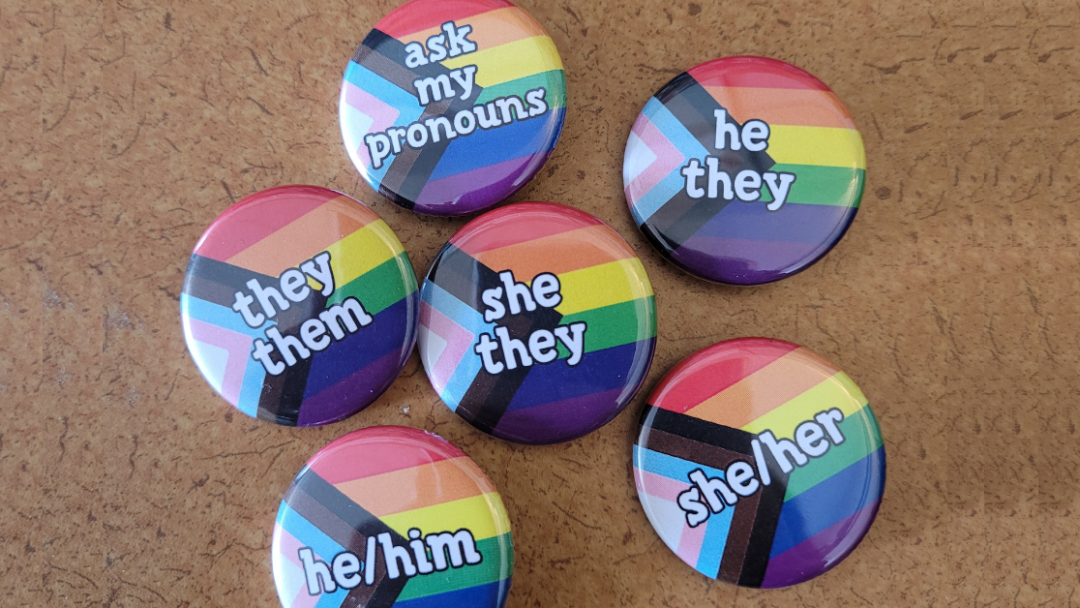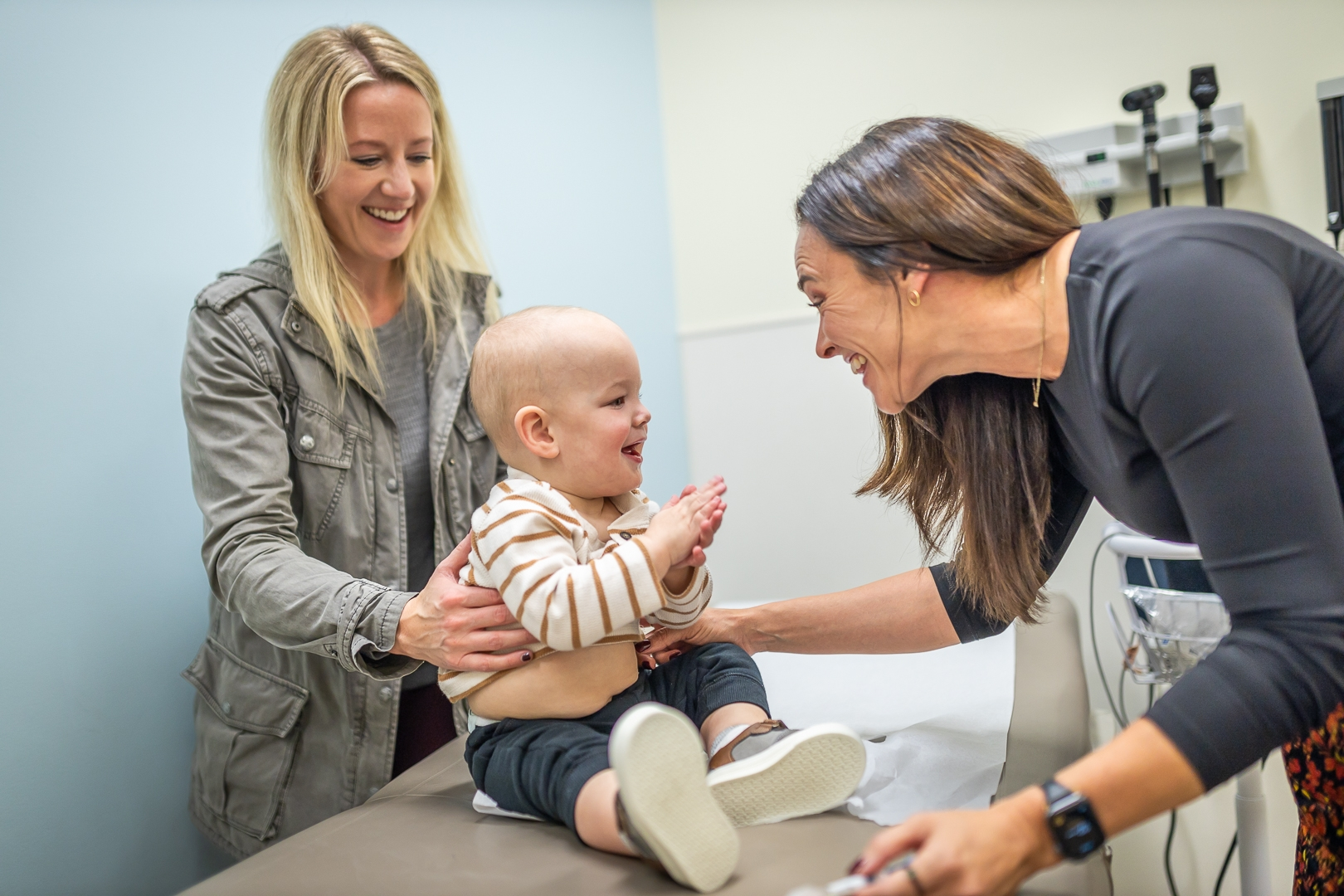Stick with it: Why pronoun pins make a difference in healthcare

June is Pride Month, a time to celebrate the 2SLGBTQIA+ community, encompassing individuals identifying as Two-Spirit, lesbian, gay, bisexual, transgender, queer, and intersex, among others. It is also a moment to honour activists who, despite risks, fought for equality, contributing to a more inclusive Canada.
In line with this inclusivity, many people across McMaster’s campus and hospitals have embraced wearing pronoun pins, signaling a commitment to respect individuals’ gender identities. This practice is more than symbolic; it is a tangible commitment to creating an environment of belonging.
Dr. Natasha Johnson, associate chair of Equity, Diversity and Inclusion in McMaster’s Department of Pediatrics and a pediatrician who led the establishment of specialized care for trans and gender-diverse youth at McMaster Children’s Hospital, highlights the impact of pronoun pins. “Wearing a pin isn’t just about signaling allyship,” she says. “It’s about affirming someone’s identity and creating a space where they feel seen and valued.”
Johnson notes that pronoun pins help to normalize the spectrum of gender identities and are a reminder that we cannot know someone’s gender just by looking at them. “It’s a small gesture with a big impact and fosters a sense of belonging and acceptance for all community members.”
According to Johnson, pronoun pins play a vital role in healthcare settings like McMaster Children’s Hospital, where patients, particularly those exploring their gender identity, need to feel safe and supported. She says that when healthcare professionals wear these pins, they help build trust and demonstrate a commitment to respecting and affirming each patient’s identity, thus improving their emotional well-being and overall health outcomes.
In 2022, Johnson’s office sourced pronoun pins from local 2SLGBTQIA+ small businesses. In consultation with queer, trans, and gender-diverse partners, her team packaged the pins with a small card outlining helpful practices and the importance of the pins. Johnson says this collaboration ensured the messages were reflective of the community’s values and goals. Since then, over 80 pins have been distributed to Pediatrics Department members. “We would have given out more, except many of our faculty and staff had already adopted the practice and were wearing pins, which is great,” she said.
Findings that emerged from the partner consultations are listed below.
When wearing a pronoun pin, you commit to:
- Listening to and believing 2SLGBTQIA+ experiences: Acknowledge and validate the experiences and perspectives of 2SLGBTQIA+ people.
- Using correct pronouns: Make a genuine effort to use people’s correct pronouns.
- Intervening against discrimination: Actively step in or de-escalate when you witness discriminatory behaviour or language.
- Creating a welcoming environment: Strive to make every individual feel welcomed and respected.
Tips to remember:
- Respect pronouns: Always use the pronouns a person has shared with you.
- Check for public use: Confirm whether it is okay to use these pronouns in public or shared spaces.
- Avoid assumptions: You cannot determine someone’s pronouns or gender just by looking at them.
- Use gender-inclusive language: When in doubt, use “they/them/their” for individuals or groups whose pronouns you do not know.
- Respect privacy: Understand that some people might not feel safe or comfortable sharing their pronouns, and that is okay.
- Normalize sharing pronouns: Lead by example by sharing your pronouns when you introduce yourself, helping to normalize this respectful practice.
- Impact over intent: Nice people can and often do cause harm, often unintentionally. If a person from the 2SLGBTQIA+ community corrects your use of an incorrect pronoun, apologize quickly and switch gears. Over-apologizing puts the focus on the person “feeling bad” instead of the person hurt by a microaggression.
Related News
News Listing

Sandeep Raha receives Coronation Medal for dedication to children, families, and community
Awards, Community, News
January 23, 2025

HHS McMaster Children's Hospital ➚
New RSV preventative medicine available at McMaster Children’s Hospital
Community, Dept. Peds, News
October 23, 2024

